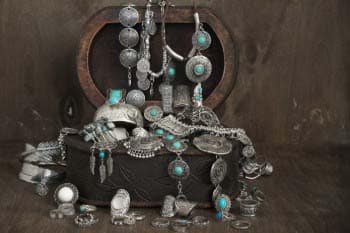Protecting Family Heirlooms With Legal Asset Protection Strategies

After a lifetime of acquiring treasured heirlooms and building up your personal assets, you should get to decide where your sentimental and valuable items go when you pass away. It may be an unpleasant topic, but planning ahead is critical when it comes to distributing family heirlooms. You don’t want to leave the job for your children to sort out on a limited timeframe, or risk having your valuable heirlooms sold to pay for your nursing home care. Top Wilmington estate attorneys from Legacy Lawyers discuss how to protect your heirlooms in the article below.
Protect Your Heirlooms With a Will
The best time to begin the process of protecting your assets is before it becomes necessary. One of the easiest tools for planning ahead is to talk with a North Carolina attorney about creating a will. This legal document makes your wishes known before moving into an assisted living facility or even passing away.
A will can stipulate if heirlooms go to children, distant relatives you are close with, friends who aren’t directly blood-related, or even charities. With a will, you can rest assured these items will legally go where you intend:
- Art
- Jewelry
- Antique dishes and silverware
- Furniture
For heirlooms with sentimental value, such as Grandma’s fine china, Grandpa’s pocket watch, or your wedding ring, it is best to discuss your wishes with your heirs as you are creating your will. This helps avoid confusion and hurt feelings.
Creating a Trust
When heirlooms have significant monetary value, a simple will may not be enough. Unfortunately, a will can’t set conditions on distributing assets and isn’t adequate to keep your possessions out of the probate process. That’s where trusts come in.
If you are still in a position to make decisions for yourself, a revocable trust gives you control over where your assets will go. This type of trust has the added benefit of avoiding probate and providing tax exemptions.
There may be cases where an irrevocable trust overseen by a different person is a better idea, however. In particular, an irrevocable trust can be used to avoid the five-year Medicaid look-back period that prevents many seniors from receiving monetary aid to pay for nursing home care.
A skilled asset protection attorney can explain the difference between trust types, as well as explain how gifting your heirlooms to family members can impact your Medicaid eligibility in the future.
Let Our Experienced Asset Protection & Estate Planning Attorneys Help You Today
No matter the size of your assets or number of heirlooms you have to pass on to family members, an experienced lawyer can offer peace of mind. It’s never too early to contact a top North Carolina asset protection attorney and discuss your options. Schedule a free 15-minute consultation so we can begin planning the best asset protection strategy for your family.

